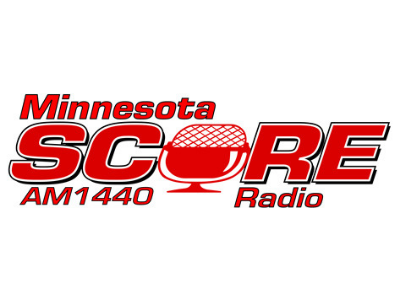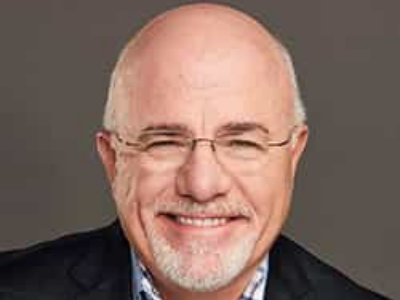Encouraging Results from a First-in-Human Phase 1 Clinical Trial of IAVI's Lassa Vaccine Candidate Published in New England Journal of Medicine
News > Health News

Audio By Carbonatix
8:00 AM on Thursday, November 6
The Associated Press
One dose elicits robust and long-lasting immune responses in healthy adults in the U.S. and Liberia
Key takeaways:
IAVI's Lassa vaccine candidate rVSVΔG-LASV-GPC has an acceptable safety profile and elicits durable immune responses.
Phase 1 data builds on promising preclinical results and supports the conduct of an ongoing Phase 2 clinical trial in West Africa.
Findings are consistent with previous studies of a similarly constructed licensed Ebolavirus vaccine.
NEW YORK, NY / ACCESS Newswire / November 6, 2025 / Findings from a first-in-human, Phase 1 clinical trial of IAVI's Lassa virus (LASV) vaccine candidate published today in the New England Journal of Medicine demonstrate that one dose of the vaccine elicits robust and long-lasting immune responses and has an acceptable safety profile. IAVI, the study sponsor, is a nonprofit scientific research organization developing vaccines and antibodies for HIV, tuberculosis, and emerging infectious diseases (EIDs).
No vaccines or therapeutics are currently licensed against Lassa fever , an acute viral hemorrhagic illness caused by LASV that is responsible for thousands of deaths each year across West Africa, where the disease is endemic. LASV is included in the World Health Organization (WHO) Pathogens Prioritization framework as a priority pathogen needing urgent research and development, and a prototype pathogen for the Arenavirus family. It is also a priority target for the Coalition for Epidemic Preparedness Innovations (CEPI), which funded the clinical trial ( IAVI C102 ). CEPI is a global partnership working to accelerate the development of vaccines and other biologic countermeasures against epidemic and pandemic threats so they can be accessible to all people in need.
IAVI C102 enrolled 114 volunteers total from the Partnership for Research on Vaccines and Infectious Diseases in Liberia (PREVAIL [1]) clinical trial site at Redemption Hospital, which is a Liberian Ministry of Health facility, as well as from Brigham and Women's Hospital, East-West Medical Research Institute, and George Washington University School of Medicine and Health Sciences in the U.S. Volunteers were randomized to receive the vaccine candidate rVSV∆G-LASV-GPC* at one of four dose levels or placebo and then monitored for 12 months post-vaccination to assess vaccine safety and induced immune responses. Investigation of immune responses in study participants was conducted by scientists based at Imperial College London, UK.
Responses activating both branches of the immune system (humoral and cellular) were detected across all dose levels up to 12 months post-vaccination. Importantly, antibodies induced by vaccination were cross-reactive to other LASV lineages known to circulate across West Africa, signaling the potential for broad protection from a single vaccine. No vaccine-related serious adverse events and no cases of hearing loss - a known risk of LASV infection - were reported during this study.
"These encouraging results add to a growing body of evidence that demonstrates the safety and immunogenicity of IAVI's single-dose Lassa vaccine candidate and further establishes IAVI and our network of partners as a leading force in the development of a vaccine to prevent future Lassa outbreaks," said Swati Gupta, DrPH, MPH,Vice President and head of emerging infectious diseases and epidemiology, IAVI. "A vaccine is urgently needed as shifting patterns in climate, migration, and human-animal interaction may expand Lassa's footprint across West Africa and even further afield. As a nonprofit product development partnership, IAVI is committed to addressing this unmet medical need together with local governments, communities, funders, and other experts with aligned global health priorities."
"Lassa fever is a cruel disease which has plagued West Africa for decades, including a deadly outbreak in Nigeria this year," said Dr. Kent Kester, Executive Director of Vaccine R&D at CEPI. "The promising Phase 1 data for IAVI's vaccine candidate takes us one step closer towards a much-needed Lassa fever vaccine which, if successful, could save thousands of lives and avert millions of dollars of societal costs in the West African countries that bear the burden of this disease."
Dr. Mark Kieh, Principal Investigator at the PREVAIL Redemption site said, "The development of a vaccine to prevent Lassa fever will provide much needed relief to our communities impacted by the virus."
Researchers previously reported strong and durable immune responses to VSV∆G-LASV-GPC in preclinical evaluations. Based on the strength of available preclinical and Phase 1 clinical data, rVSV∆G-LASV-GPC has since advanced to an ongoing IAVI-sponsored Phase 2a clinical trial, supported by CEPI, in West Africa, and is currently the most advanced LASV vaccine candidate in the clinical development pipeline. rVSV∆G-LASV-GPC uses the same recombinant vesicular stomatitis virus, or rVSV, vector platform as ERVEBO®, Merck's single-dose vaccine against Ebolavirus, which is licensed in more than a dozen countries and has been extensively used in adults and children during Ebola outbreaks.[2] The rVSV platform underpins IAVI's broader EID vaccine development portfolio .
IAVI and members of the global Viral Hemorrhagic Fever Consortium have been collaborating since 2018 to accelerate clinical development of rVSV∆G-LASV-GPC, in studies supported and funded by CEPI and the European & Developing Countries Clinical Trials Partnership (EDCTP). Clinical evaluation of rVSV∆G-LASV-GPC is also supported by PREVAIL, a Liberia-U.S. clinical research collaboration established in 2014 by the U.S. National Institutes of Health's National Institute of Allergy and Infectious Diseases and the Liberian Ministry of Health.
In September 2025, West African Ministers of Health and the West African Health Organization held high-level talks at the Lassa fever International Conference in Abidjan, Côte d'Ivoire. There they endorsed a communiqué that reaffirmed their political endorsement of accelerating Lassa fever vaccine readiness as a regional strategic health priority and a cornerstone of pandemic preparedness. They committed to supporting the development of IAVI's Lassa vaccine candidate through a collaborative co-funding approach and joint action to mobilize and secure resources through advocacy and regional coordination.
IAVI is committed to advancing the rVSV∆G-LASV-GPC vaccine to licensure and to ensuring affordable access should the vaccine be shown to be safe and efficacious in clinical trials.
*rVSV∆G-LASV-GPC is based on an attenuated, or weakened, strain of vesicular stomatitis virus (VSV) that has been modified to express a Lassa virus protein that plays an essential role in establishing viral infection.
Authors of "Safety and Immunogenicity of an rVSV Lassa Fever Vaccine Candidate" include: Elissa Malkin, George Washington University, Vaccine Research Unit, Washington D.C., USA; Marija Zaric, Arianna Marini, Heejin Yun, Peter Hayes, Natalia Fernandez, Ruhani Varma, Faith Sigei, Matthew Ward, Shayna Sewell, Fahimah Amini, Swapnil Hadawale, Eddy Sayeed, Devin Hunt, Nahid Keshavarzi, Christopher L. Parks, Shobhna Gopal Truter, Kathleen Walker, Johan Vekemans, Jennifer Lehrman, Michelle Engelbrecht, Mariette Malherbe, Dagna Laufer, Vincent Philiponis, Gaudensia Mutua, Patricia E. Fast, and Swati B. Gupta of IAVI, New York, USA; Rachel Bromell, Morolayo Ayorinde, and Hema Pindolia of Imperial College London, UK; Mark Kieh, Julie Blie, Barthalomew Wilson, Patrick Faley, John McCullough, Franklin Tokpah, Cecelia Wisseh, and Elvis Towalid of The Partnership for Research on Vaccines and other Infectious Diseases in Liberia; Lindsey Baden of Brigham and Women's Hospital, Boston, USA; David Fitz-Patrick of East West Medical Research Institute, Honolulu, USA; Burc Barin of The Emmes Company, Rockville, USA; Irina Maljkovic Berry of the Integrated Research Facility at Fort Detrick, Division of Clinical Research, National Institute of Allergy and Infectious Diseases, National Institutes of Health, Fort Detrick, Frederick, USA; and Elizabeth Higgs of the Division of Clinical Research, National Institute of Allergy and Infectious Diseases, National Institutes of Health, Rockville, USA.
###
IAVI Media Contact
Karie Youngdahl
CEPI Media Contact
+44 7387 055214
PREVAIL Communication Contact
Barthalomew Wilson
+231776405369
About IAVI's rVSV vaccine candidates
IAVI licensed the vaccine technology underlying rVSV∆G-LASV-GPC from the Public Health Agency of Canada (PHAC). rVSV∆G-LASV-GPC is based on an rVSV vector and was developed by scientists at PHAC's National Microbiology Laboratory.
IAVI's EID portfolio includes a Sudan virus vaccine candidate supported by the U.S. Biomedical Advanced Research Authority (BARDA), the Dutch Ministry of Foreign Affairs, and the Japanese Ministry of Finance; a Lassa fever vaccine candidate supported by CEPI and EDCTP; and a Marburg virus vaccine candidate supported by BARDA and the Defense Threat Reduction Agency (DTRA) of the U.S. Department of Defense (DOD).
Much of the research and development on IAVI's rVSV platform is performed at the IAVI Vaccine Design and Development Laboratory (DDL) in Jersey City, New Jersey, U.S. Since its founding in 2008, the IAVI DDL has become one of the world's leading viral vector vaccine research and development labs, known for innovation and generation of novel vaccine design concepts.
Funders who have made the development of IAVI's rVSV-vectored vaccine candidates possible historically include the Gates Foundation; the Government of Canada; the Danish Ministry of Foreign Affairs; the Government of Japan; the Irish Department of Foreign Affairs and Trade; the Dutch Ministry of Foreign Affairs; the Norwegian Agency for Development Cooperation; the U.K. Foreign, Commonwealth & Development Office; the U.S. National Institutes of Health; and through the generous support of the American people from the United States Agency for International Development.
About IAVI
IAVI is a non-profit scientific research organization dedicated to addressing global, unmet health challenges including HIV, tuberculosis, and a range of emerging infectious diseases. Its mission is to translate scientific discoveries into affordable, globally accessible public health tools. Read more at www.iavi.org .
About CEPI
CEPI was launched in 2017 as an innovative partnership between public, private, philanthropic and civil organisations. Its mission is to accelerate the development of vaccines and other biologic countermeasures against epidemic and pandemic threats so they can be accessible to all people in need. CEPI has supported the development of more than 70 vaccine candidates or platform technologies against multiple known high-risk pathogens or a future Disease X. Central to CEPI's pandemic-beating five-year plan for 2022-2026 is the ‘100 Days Mission' to accelerate the time taken to develop safe, effective, globally accessible vaccines against new threats to just 100 days.
About PREVAIL
The Partnership for Research on Vaccines and Infectious Diseases in Liberia (PREVAIL) is a joint Liberia-United States biomedical research program internationally recognized for conducting biomedical research that impacts healthcare delivery. PREVAIL's mission is to conduct collaborative research and rapidly respond to emerging disease threats that inform the development of medical countermeasures and improve the health of the people of Liberia, the United States, and people worldwide.
1 The Liberian Ministry of Health and the U.S. National Institutes of Health's National Institute of Allergy and Infectious Diseases established PREVAIL in 2014 to support Liberia's research response to the West African Ebola outbreak with the aim of accelerating development of Ebola vaccines and therapeutics. After the country was declared free of Ebola in 2016, PREVAIL's focus shifted to supporting Liberia's research on multiple diseases of public health importance.
SOURCE: IAVI
View the original press release on ACCESS Newswire





